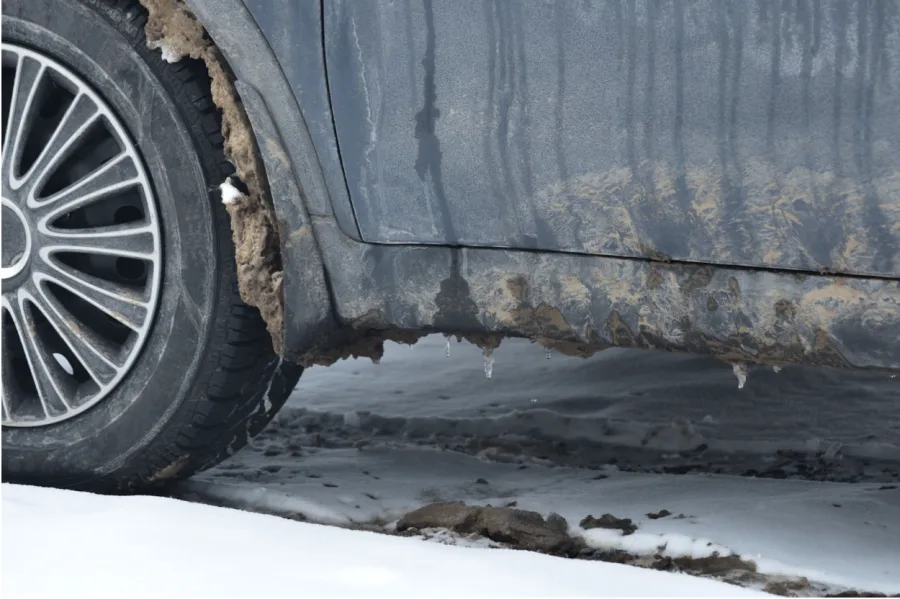
Why rust is the No. 1 killer of cars in Ontario, according to experts
Canadians are rushing to get their 'cars in a row' as the first signs of winter begin to make themselves known across the country.
We have all felt how powerful Canadian winters can be. Between snow, rain, hail and ice - we can’t seem to catch a break. That’s why the weeks leading up to the winter season are crucial times for drivers.
It’s important to prepare your vehicle for the harsh weather ahead. From switching to snow tires to preparing a vehicle emergency kit, these are not the only necessity to ensure safer travel during the snowy season.
According to Freeman Young, president of family owned and operated business Krown Rust Control (KRC), protecting your vehicle against rust is essential when it comes to winter road safety.
“I put my snow tires on, I don't fool around… but there is an aspect of rust control that keeps the vehicle's frame solid," explained Young. There's a safety issue because as it rusts, the integrity of the car begins to sort of break down. And if you are in an accident, it can be the difference between living and dying.”
Rust protection is an annual application that is most impactful when done before winter hits, but what causes rust to form in the first place? In Canada, the two main culprits are salt and climate.
Although road salt and de-icing chemicals keep roads drivable during icy winters, these methods can stick to the underbody of your vehicle and wreak havoc on both the longevity and foundation.

(Credit: Greenseas/Getty Images/stock photo)
In Ontario alone, 3-5 million tonnes of road salt can be used annually for winter road maintenance. While this amount of salt keeps roads safe, it can also cause rust to form and eat away at the metal frame of your car — especially since rust typically thrives in hard to reach areas, where you can easily miss early signs of rust forming if you are not looking for it.
“Just that good old red stuff that shows up on the bottom of your doors and on the underside of the frame of your vehicle…Between the type of salts we put on the road and the variation of heat, cooling and snow - corrosion is the number one killer of vehicles in Ontario,” added Young.
Climate is also a big contender when it comes to rust. While vehicles are manufactured to withstand even the harshest weather conditions, no automobile is immune. Rain, moisture, humidity and snow can have significant implications on the body of your vehicle and rust protection can make a big difference in defending it against those elements.
Simply put, rust protection works by lifting moisture off metal - even in the smallest seams and crevices of your vehicle - and repels water off the metal for the long haul of winter, so rust is less likely to form.
“Our business is really designed to protect vehicles to help the average family and person extend the life of their vehicle, reduce the cost of running it...and when it's time to sell it, actually get more for it. So we're really trying to make a positive impact on the family budget,” said Young.

(Credit: Dzurag/Getty images/stock photo)
It’s important to inspect your vehicle regularly, looking for any early signs of rust under wheel wells, the exhaust, underneath car doors and anything else that is made of metal or steel.
And because there are so many vehicles out there, it's best to get rust protection applied by a professional. Krown Rust Control has been in rust protection for 25 years-plus, operating in over 250 locations across Canada, with approximately 95 per cent of shops being family operated and run.
We hope with these preventative measures, you can save yourself time, frustration and money this winter season!
